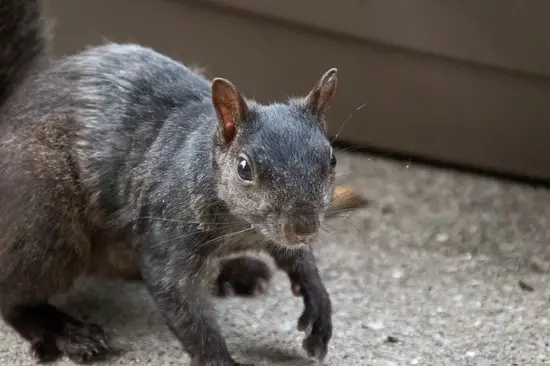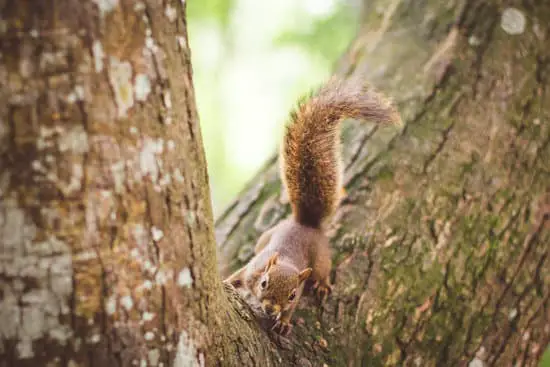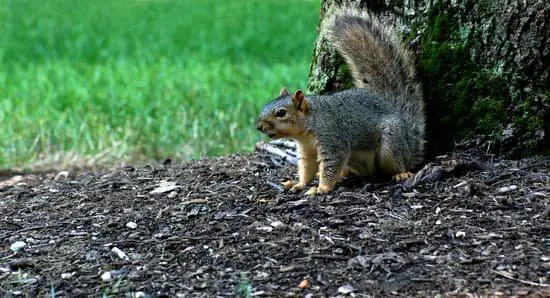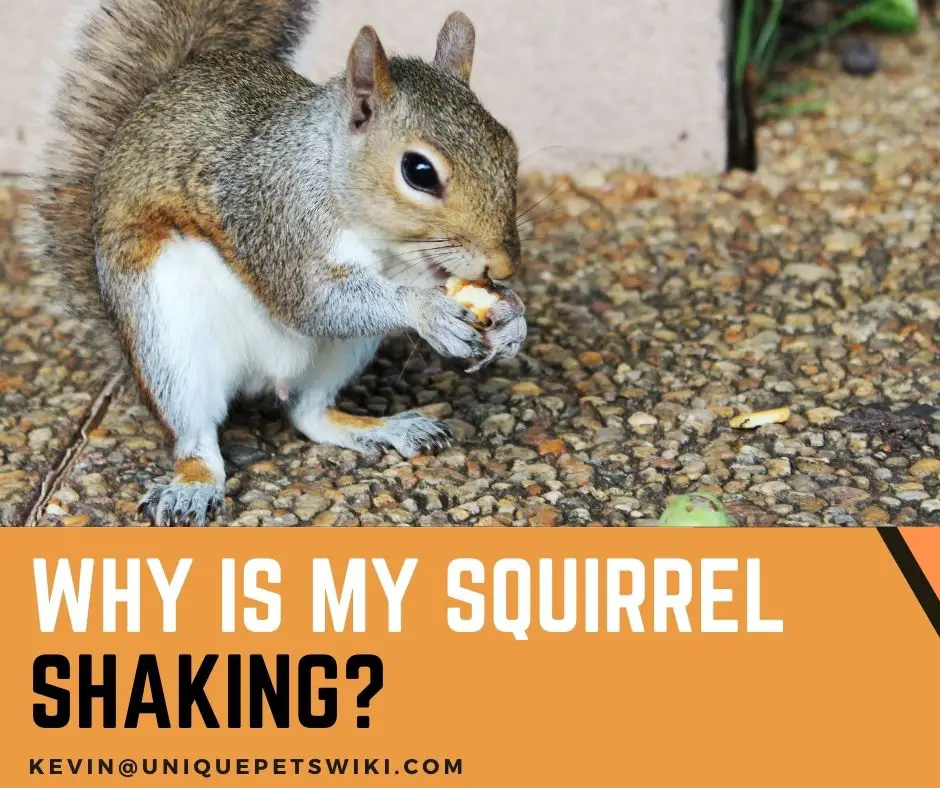To see your pet squirrel shaking causes tension. Every squirrel’s caretaker desires to raise healthy and vibrant animal pets on all occasions.
While many people perceive a shaking squirrel as sick, it’s not always true speculation. Squirrels are communicative, and shaking is one way they use to communicate.
More often, squirrels shake for harmless reasons, but on some occasions, shaking can be a cry for your intervention.
That means that many things may cause a squirrel to shake. This short article covers every reason that makes squirrels shake, circumstances that need medication, and what you should do to help. Keep reading for more!
This article has been reviewed by Dr. Linda. Read more about our knowledge control process here.
Contents
Why Is My Squirrel Shaking?
Squirrels’ shaking behavior is attributed to three causes: attracting mates, sickness, or signs of trauma.
The reason for shaking depends on the squirrel’s part that shows the sign. For instance, a squirrel shaking the whole body is a sign of illness. Below is a thorough discussion of the reasons behind shaking in squirrels.
The Squirrel Shakes the Head: Signs of Trauma
A squirrel shaking his head could be a sign of trauma. Head trauma may arise when a squirrel is hit by a car or falls from a tree. Additionally, these little furballs are prone to attack many animals such as dogs and cats.
Other symptoms of head trauma include listing to the side, bleeding from the nose and mouth, or walking in circles.
A squirrel with head trauma and brain injury losses balance and constantly shakes out of disorientation or due to damage.
If you notice your pet squirrel shaking its head, circling, or losing balance, it’s best to get it checked out by your exotic veterinarian.

The Squirrel Shakes the Whole Body: Signs of Illness
The downside of squirrels is their susceptibility to diverse diseases. Shivering or whole-body shaking is one common symptom of a sick squirrel.
In squirrels, sickness or illness is also accompanied by other signs such as discharge from the eyes, nose, and mouth, seizures, coughing, rashes, wheezing, visible tumors, weakness, or sneezing.
A sick squirrel may also appear lazy and have visible skin abnormalities like bare skin or spots. Note that proximity to a diseased squirrel exposes you to the danger of contracting diseases such as Lyme disease, rabies, salmonellosis, or more.
Don’t go near the squirrel to avoid direct contact or bites. The safest approach if you spot a squirrel that is unwell is to contact an exotic vet or any Wildlife rehabilitation you know.
The Squirrel Shakes Its Tail: Alarm, Mate and More
A squirrel’s tail does not only add to its beauty, but it’s also a helpful appendage when it comes to communication. When you see a squirrel busy wagging its tail, it’s definitely communicating something.
In most circumstances, major reasons that compel squirrels to shake their tail include defending their territory, attracting mates, sounding the alarm to other squirrels, or venting their exasperation.
Sounding the Alarm to Other Squirrels
A squirrel resting on top of a tree is also keen on what is going on in its vicinity. These rodents are gifted watchers and are considerate of their colleague’s safety.
A squirrel that perceives a threat shakes its tail towards other squirrels within the vicinity to alert them of what is happening.
Such a squirrel wags its tail and makes weird sounds seeking to get the attention of its colleagues close to it and alarm them of the incoming danger.
On the other side, the squirrel twitches the tail to inform the predator that ‘I’m aware of your presence, and you better not come closer.’

Also read: Do squirrels attack each other?
Attract Mates
Shaking the tail is common among male squirrels during mating season as a way of seducing squirrels of the opposite gender.
A female in heat will have many males fighting to mate with it. Therefore, the males have to compete with each other, expressing several tactics until the winner emerges.
Several means that males use to compete for the female include hiding somewhere close to the female’s territory to catch her before the other males do, frightening other males with an anti-predator call, etc.
The male privileged to do the mating typically seductively shakes its tail to attract the desired female and entice her to move closer.
Venting Their Exasperation
Squirrels are typically not aggressive, but they can get pretty annoyed in some circumstances. When frustrated, these cute furballs usually don’t know how to manage their tempers.
They shake their tail constantly to express their frustrations. Several instances that may irritate a squirrel include a person or predator trespassing their personal space.
These rodents are easily frustrated if they can’t obtain what they want and will begin to shake their tail.
Defending Their Territory
Squirrels, especially males, act aggressively when intruders come to their territories. They twitch their tail to warn intruders or other squirrels from invading their territory.
Red squirrels tend to be highly territorial and don’t associate well with animals disrupting their personal space.

Contrastingly, some squirrel species like gray squirrels can accommodate other squirrels without problems. They will also go along to feed with other squirrels. By this, it means that not all squirrel species are territorial.
FAQs
What to do if a baby squirrel is shivering?
If you notice or spot a baby squirrel shivering, keeping it warm is necessary. Use gloved hands to pick the baby, and wrap it in a soft cloth, and carefully place it in a warm, safe, and newspaper-lined box.
Place the box in a secure and quiet place away from other animals. Then, consult a vet or rehabilitator before doing anything else.
Do squirrels get Seizures?
Seizures are one symptom to look out for in squirrels suffering from metabolic bone disease. The affected squirrel may seem fine at first, but eventually, paralysis or seizures follows.
Why is my squirrel having seizures?
The presence of seizures indicates that a squirrel is not getting sufficient calcium from its diet. The body will eventually dissolve calcium from the bones and use it instead, and if this progresses, the bones become depleted of calcium.
The muscles stiffen, and the body organs cannot function properly. The bones weaken and affect movement.
In Conclusion
Squirrels may shake because of different reasons. For instance, a squirrel can twitch its tail to alert other squirrels when it senses danger. It mostly happens when they spot a ground predator.
Likewise, squirrels twitch their tail to attract potential mates, express their anger, and safeguard their territory from intruders. The whole-body shaking is a sign of sickness, while constant head shaking means that the squirrel has trauma.
